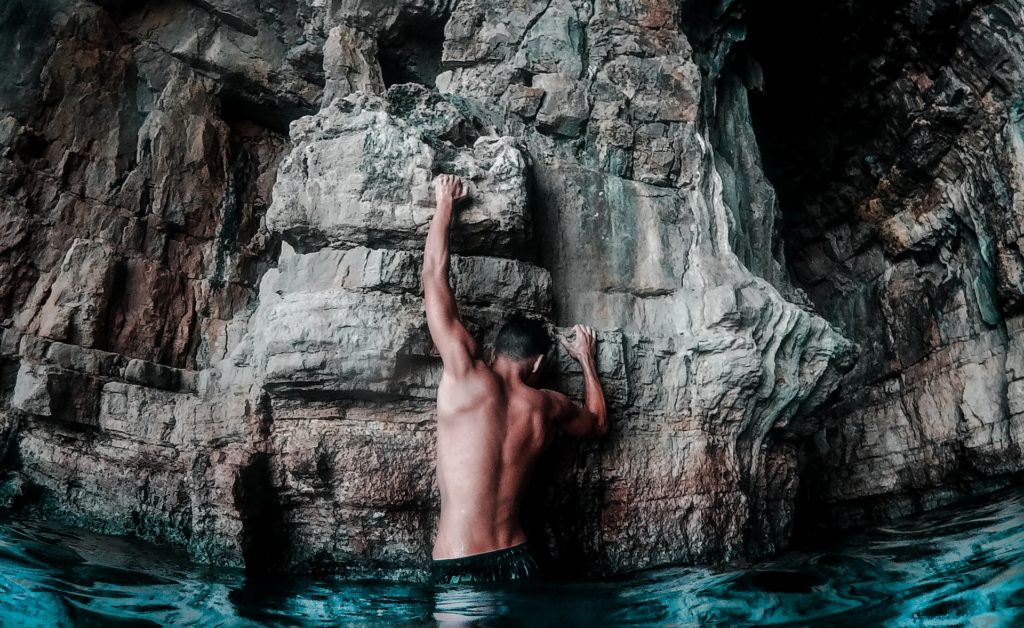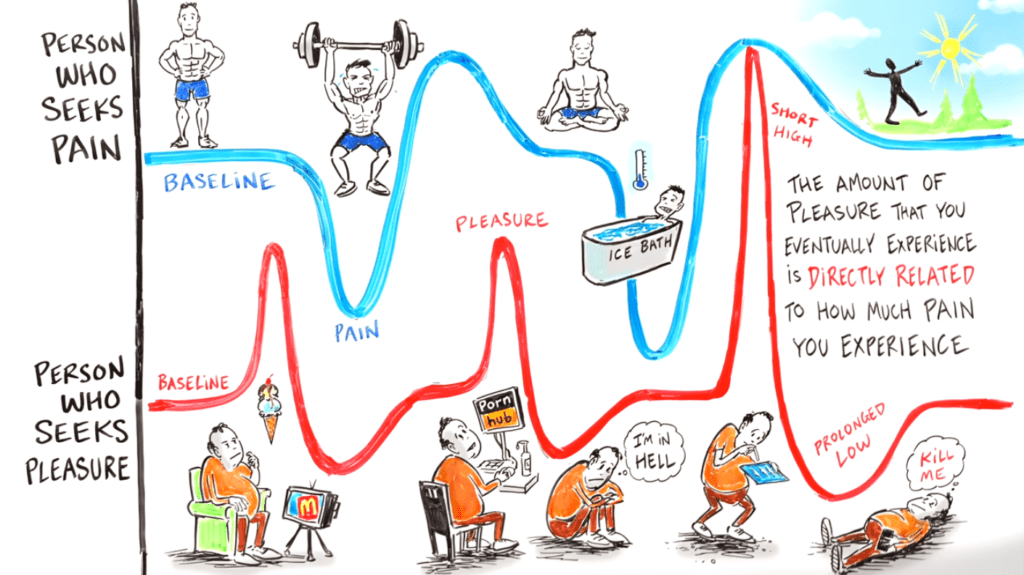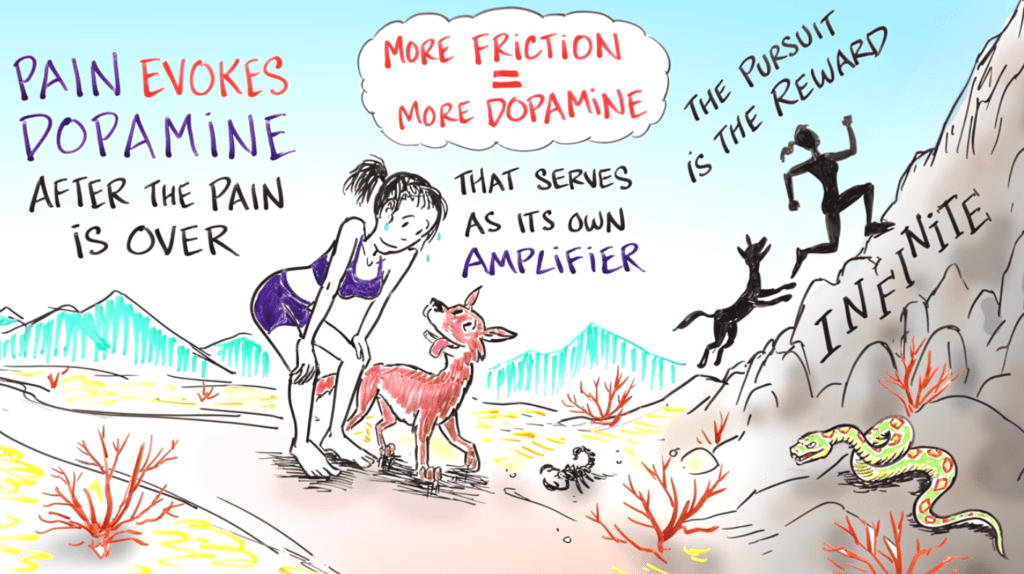
I was watching an After Skool video where Dr. Andrew Huberman — neuroscientist and host of the Huberman Lab Podcast — says this:
“The amount of pleasure you eventually experience is directly related to how much pain you experience.”

“… Giving somebody a ten-minute ice bath, for instance. Or even a three-minute ice bath, or a one-minute ice bath — it’s quite painful. But there was a study from the University of Prague, European Journal of Physiology; [it] showed that after a painful ice bath stimulus, the amount of dopamine release goes up for two and a half hours to 250% above baseline.”
“And that’s not because the ice bath itself evokes dopamine release. A lot of people think, ‘oh, cold water evokes dopamine release.’ No, pain evokes dopamine release after the pain is over. Just understanding the more friction and pain you experience, the greater the dopamine reward you will get later…” Doing hard things, apparently, makes you happier.

I had a conversation last month with someone who expressed they had a lack of motivation to exercise. They admitted to a form of mild “running,” aka. sprinting to not miss a bus (as you do, as we all).
As a fellow regular exerciser, I wanted to say something — something profound — to convince them to get into exercising. Only, I didn’t have an answer then. Now I do, so here it is.
What I know for sure: working out is self-inflicted torture. It really is. Sometimes I enjoy it, sometimes I can tolerate it, sometimes it’s pure agony. But after I’m done? I feel good. And isn’t that sexy enough of a reason?
EDIT: I have been alerted that the line I first quoted (“The amount of pleasure you eventually experience is directly related to how much pain you experience”) is not entirely correct. Thank you to Joe Nelkins for this. Here is his comment: “Unsure if the person that put this in words communicated it correctly, but I disagree with it. Dopamine is released after completing a task. The more challenging the task in our minds, the more Dopamine is released. It acts as a reinforcement mechanism. But these challenges don’t have to be related to pain. Dopamine is a reward mechanism. I believe the issue arises when you reward yourself without any challenges (Social media, TV, Food, etc) You mess up your Dopamine receptors and need more rewards than the ones you are provided and stop making any efforts. Which leads to the situation you just described.”
Read: The Myth Behind Motivation — Why Doesn’t It Work For You?
